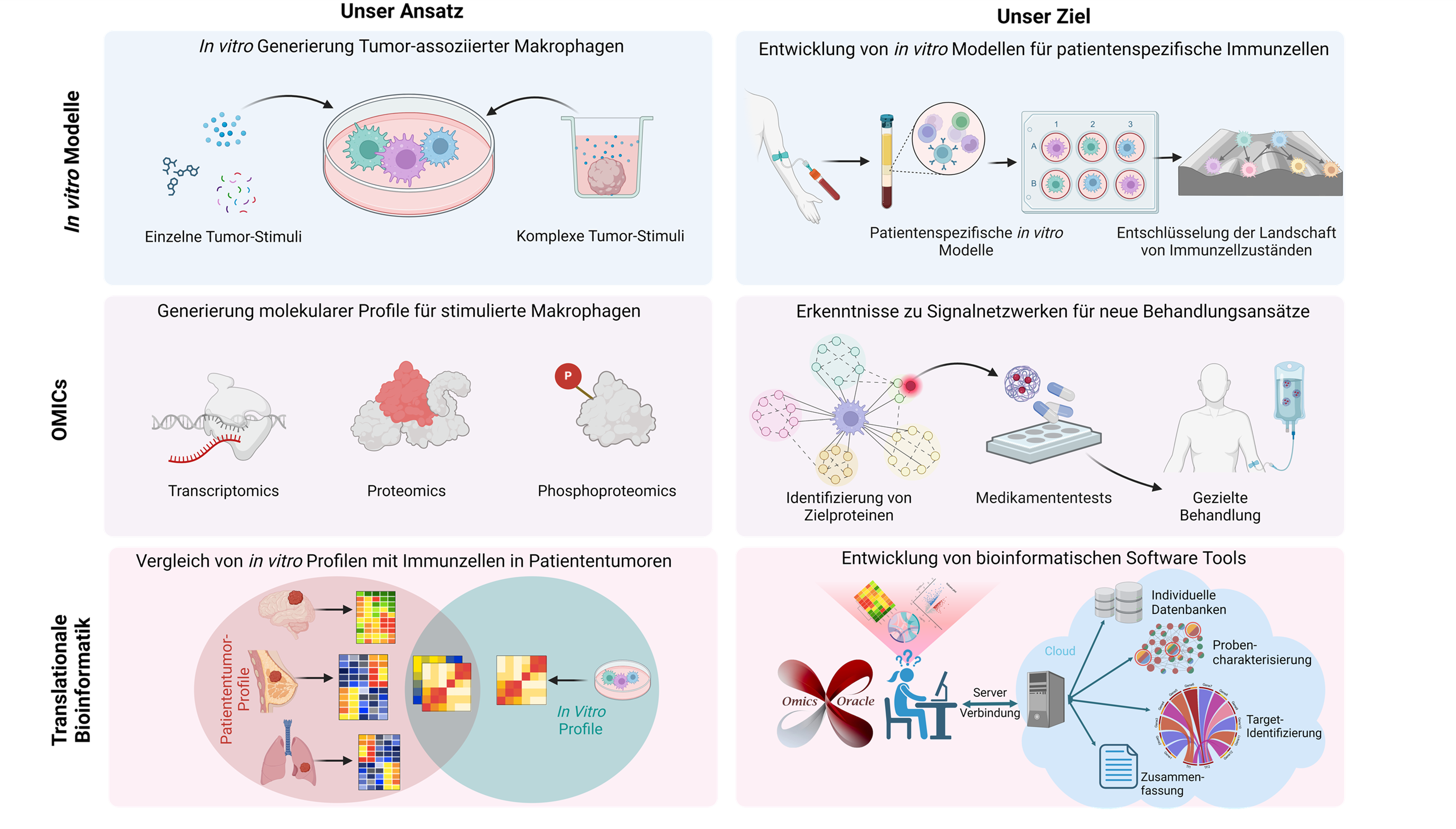Data analysis for tumor microenvironment characterization and modulation
Tumor cells and their surrounding microenvironment, in particular immune cells, are extensively characterized with modern technologies and the generated datasets are often openly shared with the scientific and medical community. Deep interest in the tumor microenvironment stems from its clear role in shaping disease progression and therapy response and has been intensified due to the strong potential of immunotherapy in treating even patients with progressed metastases.
In our work, we use advanced data analysis and machine learning methods to analyse and integrate high throughput datasets from multiple preclinical and patient studies. In addition, based on the specific hypotheses, we generate new multi-omics datasets for the cells that play a role in the tumor development and we relate molecular profiles of these cells to those found in patient tumors. We use the obtained insights to inform the design of new nanomaterials, which can help to overcome suppression of immune responses in tumor microenvironment and which can be of interest for combinatorial therapies.
Tumor cells often produce molecules that are not present in healthy cells. Therefore, they should be recognized and attacked by the immune system, especially T cells. However, to survive and grow, the tumor often releases molecules that reprogram the functions of immune cells in such a way that they even promote tumor growth and invasion. We aim to better understand the associated processes in the tumor microenvironment by addressing two interrelated problems: i) How do specific cancer mutations and changes in gene expression shape the surrounding immune microenvironment? And ii) How do specific signaling mediators in the tumor microenvironment alter the molecular phenotypes of the surrounding immune cells, especially macrophages? Cancer mutations lead to changes in the composition and functional state of the surrounding immune cells by causing the secretion of various signaling mediators. We are particularly interested in mapping changes in macrophages caused by the molecules released by the tumors and other cells in the tumor microenvironment. Data analysis allows us to infer crucial regulators of the characterized cellular states and these regulators can be of particular interest for the rational therapy design.
In order to address these questions, we work closely with clinical researchers at University Hospital Zurich, University Hospital Bern and Cantonal Hospital.
Or look at the video interview where we describe some of our research activities.
Dr. Marija Buljan
Nanomaterials in Health
Tel. +41 58 765 7908
We highly appreciate kind support of the Swiss Cancer Foundation, Uniscientia Foundation and Theron Foundation for our research.

